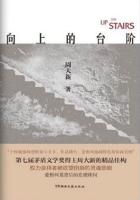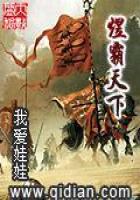The Emperor had two swords similar to the one he wore the day of the battle of Austerlitz. One of these swords was given to the Emperor Alexander, as the reader will learn later, and the other to Prince Eugene in 1814. That which the Emperor wore at Austerlitz, and on which he afterwards had engraved the name and date of that memorable battle, was to have been inclosed in the column of the Place Vendome; but his Majesty still had it, I think, while he was at St. Helena.
He had also several sabers that he had worn in his first campaigns, and on which were engraved the names of the battles in which he had used them. They were distributed among the various general officers of his Majesty the Emperor, of which distribution I will speak later.
When the Emperor was about to quit his capital to rejoin his army, or for a simple journey through the departments, we never knew the exact moment of his departure. It was necessary to send in advance on various roads a complete service for the bedroom, kitchen, and stables; this sometimes waited three weeks, or even a month, and when his Majesty at length set out, that which was waiting on the road he did not take was ordered to return. I have often thought that the Emperor acted thus in order to disconcert those who spied on his proceedings, and to baffle their schemes.
The day he was to set out no one could discover that fact from him, and everything went on as usual. After a concert, a play, or any other amusement which had collected a large number of people, his Majesty would simply remark on retiring, "I shall leave at two o'clock!" Sometimes the time was earlier, sometimes later; but he always began his journey at the designated hour. The order was instantly announced by each of the head servants; and all were ready at the appointed time, though the chateau was left topsy-turvy, as may be seen from the picture I have given elsewhere of the confusion at the chateau which preceded and followed the Emperor's departure. Wherever his Majesty lodged on the journey, before leaving he had all the expenses of himself and of his household paid, made presents to his hosts, and gave gratuities to the servants of the house. On Sunday the Emperor had mass celebrated by the curate of the place, giving always as much as twenty napoleons, sometimes more, and regulating the gift according to the needs of the poor of the parish. He asked many questions of the cures concerning their resources, that of their parishioners, the intelligence and morality of the population, etc.
He rarely failed to ask the number of births, deaths, marriages, and if there were many young men and girls of a marriageable age. If the cure replied to these questions in a satisfactory manner, and if he had not been too-long in saying mass, he could count on the favor of his Majesty;
his church and his poor would find themselves well provided for; and as for himself, the Emperor left on his departure, or had sent to him, a commission as chevalier of the Legion of Honor. His Majesty preferred to be answered with confidence and without timidity; he even endured contradiction; and one could without any risk reply inaccurately; this was almost always overlooked, for he paid little attention to the reply, but he never failed to turn away from those who spoke to him in a hesitating or embarrassed manner. Whenever the Emperor took up his residence at any place, there were on duty, night and day, a page and an aide-decamp, who slept on sacking beds. There was also constantly in attendance, in an antechamber, a quartermaster and sergeant of the stables prepared to order, when necessary, the equipages, which they took care to keep always in readiness to move; horses fully saddled and bridled, and carriages harnessed with two horses, left the stables on the first signal of his Majesty. These attendants were relieved every two hours, like sentinels.
I said above that his Majesty liked prompt replies, and those which showed vivacity and sprightliness. I will give two anecdotes in support of this assertion. Once, while the Emperor was holding a review on the Place du Carrousel, his horse reared, and in the efforts his Majesty made to control him, his hat fell to the ground; a lieutenant (his name, I
think, was Rabusson), at whose feet the hat fell, picked it up, and came out from the front ranks to offer it to his Majesty. "Thanks, Captain,"
said the Emperor, still engaged in quieting his horse. "In what regiment?"--"Sire?" asked the officer. The Emperor, then regarding him more attentively, and perceiving his mistake, said to him, smiling, "Ah, that is so, monsieur; in the Guard."
The new captain received the commission which he owed to his presence of mind, but which he had in fact well earned by his bravery and devotion to duty.
At another review, his Majesty perceived in the ranks of a regiment of the line an old soldier, whose arms were decorated with three chevrons.
He recognized him instantly as having seen him in the army of Italy, and approaching him, said, "Well, my brave fellow, why have you not the cross? You do not look like a bad fellow."--"Sire," replied the old soldier, with sorrowful gravity, "I have three times been put on the list for the cross."--"You shall not be disappointed a fourth time," replied the Emperor; and he ordered Marshal Berthier to place on the list, for the next promotion, the brave soldier, who was soon made a chevalier of the Legion of Honor.















